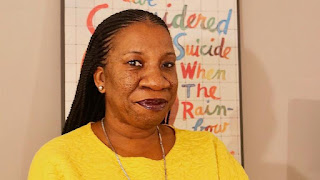How the #MeToo Movement has Damaged Women in the Workplace
Content warning - themes, topics, and language related to sexual assault takes place in this article.
It has been over a year since the #MeToo movement created a second wave of stories, awareness, and support across social media platforms by those impacted by sexual harassment and assault. The movement was created in 2007 by Brooklyn activist, Tarana Burke. Burke, a three time survivor of sexual assault, knew she was not alone in being a victim. She knew she needed to raise awareness to an issue many women are affected by, but are often silenced by their attackers or society - sexual harassment or assault.
The movements 2017 revival has allowed for women to be heard and accepted across the globe, but has it hurt women along the way?
Research shows the importance of having a mentor in your work life. Somebody you can look up to, somebody who can offer support and resources, and somebody who can help you grow personally and professionally in your role at work. As an unintentional side effect of the #MeToo movement, less women are able to secure mentorship opportunities opportunities due to the fact that some men fear they will be accused of sexual harassment or assault. Aside from women already having a hard time finding mentor/mentee relationships in the workplace, this setback puts women at a disadvantage, as most mentors in organizations are male.
When women finally secure mentorship's, they are often subject to harassment and poor guidance. Female mentors offer empathy, active listening skills, emotional support, and allow for power to be shared within an organization. Male mentors are committed to exposing their skills displaying workplace independence, or power.
"Almost half of male managers are uncomfortable participating in a common work activity with a woman, such as mentoring, working alone, or socializing together."
https://leanin.org/sexual-harassment-backlash-survey-results
"The number of male managers who are uncomfortable mentoring women has more than tripled from 5% to 16%. This means that 1 in 6 male managers may now hesitate to mentor a woman."
https://leanin.org/sexual-harassment-backlash-survey-results
The data above, pulled from a 2018 study done by Lean In, assessed the opinions of men in the workplace in a post #MeToo world. The data above proves that females are being put at a disadvantage in the workplace due to male worry. Only 2% of reported sexual assault cases are proven to be false reports, which is an equal value to other false reported cases, such as robbery. Along with that, only 40% of sexual assault cases are reported annually, and most women are often not believed and are subject to judgement. This value is even lower for women who suffer assault at the hands of a co-worker or mentor.
https://web.stanford.edu/group/maan/cgi-bin/?page_id=297
The real worry lies behind a woman's inability to secure a successful and meaningful mentorship at work, or a woman's ability to feel safe and supported in the workplace.
"I don’t want to miss this moment. It’s not always going to be on TV. The media isn’t always going to care about what I have to say about sexual violence. When that goes away, I need you to still care about this. I need you to recognize this is an epidemic, a pandemic that won’t go away by just talking. Speeches and hashtags don’t make it go away."
Tarana Burke


This concept fits with me personally, as I have both a male and female mentor in my life. I notice with my male mentor we sit and talk in more public settings where my female mentor and I can be in her office having a conversation which is not in a public setting. My one question would be do male leaders with daughters find it easier to accept a female mentor since the #MeToo movement?
ReplyDeleteSuper relevant topic & I found it very thoughtful that you added a content warning! Did it mention what things women can do in order to address these issues like ways to combat the issue of lower male mentorship
ReplyDelete?
This is really important research and something that I have not thought of before. As a woman going into a male-dominated field, I am sure I will run into problems with finding mentors throughout my career. Being aware of this issue will be helpful in my career.
ReplyDelete